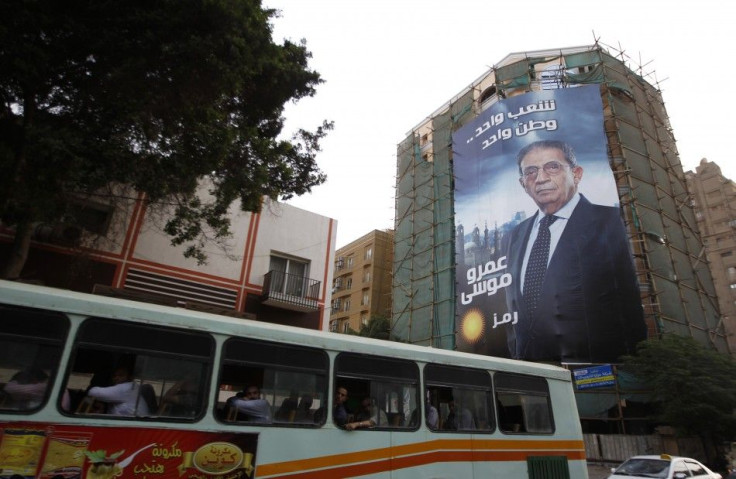Egypt Facing Chaotic Presidential Election As Military Looms Over Supposed Shift To Democracy

Egypt is preparing to hold its first free presidential election on Wednesday, fifteen months after a revolution toppled the 30-year regime of former leader Hosni Mubarak.
Since that momentous event, hundreds of people have died in numerous clashes, while controversies have flared over what the next government should look like.
As some of Mubarak’s former regime members have been arrested and imprisoned, a spate of potential candidates have also been blocked from running. Meanwhile, there is great concern that the ruling military -- which has basically been running Egypt on a so-called interim basis -- is using the election as a façade to maintain its grip on the country.
Thus, the North African nation is facing what is likely to be a chaotic poll -- Egypt’s 51-million voters will choose from a total of twelve candidates, with none expected to gain anywhere near a majority of the vote.
In the likely event that no one candidate receives half of the vote, a run-off between the top two candidates will be held the following month.
Sarah Hawas, a young activist, is skeptical about the election.
It's extremely difficult for anyone that has been struggling in this revolution from day one to trust -- even superficially -- that these elections mean anything but a referendum for continued military control, she told National Public Radio.
She added that the ruling generals have attacked and arrested thousands of anti-government protesters.
I don't think that given the present condition, that any president -- no matter how close to the revolution -- will have much sway at ending the state of affairs,” she said.
Other young Egyptians are excited about the election and what it means for the future.
Most of the Egyptians believe this is a turning point, said Hassan Abu Taleb. Maybe it will open a window -- a small window -- for democratization, for economic achievement, for security and stability.
However, the identity of the new president may actually be immaterial since there is no fixed idea of what his powers will encompass.
The ruling military council and the political parties have postponed defining the president’s role until after the election; their goal is to do so in tandem with the drafting of a new constitution.
Previous attempts to write a comprehensive constitution were scuttled by repeated infighting among various political groups, especially between the Islamists and leftist, secular parties.
No one really knows what the outcome of this vote is. And neither side feels it should set down just yet what powers the unknown president will have over the state, an Egyptian official told Reuters.
The Muslim Brotherhood, whose Freedom and Justice Party (FJP) gained the largest numbers of votes in parliamentary elections in January, is currently satisfied with an interim constitution, but it is also looking to draft a new constitution that will clearly define the powers and responsibilities of the president and parliament.
One of the biggest questions regarding the new constitution would concern the army and how much authority it will allow a civilian leader to possess.
The military council is very worried now that if a president is elected and the military council does not have influence over the drafting of the constitution, their position in the state will be undermined. They are very resistant to this, said Essam Haddad, senior Muslim Brotherhood official.
© Copyright IBTimes 2024. All rights reserved.




















